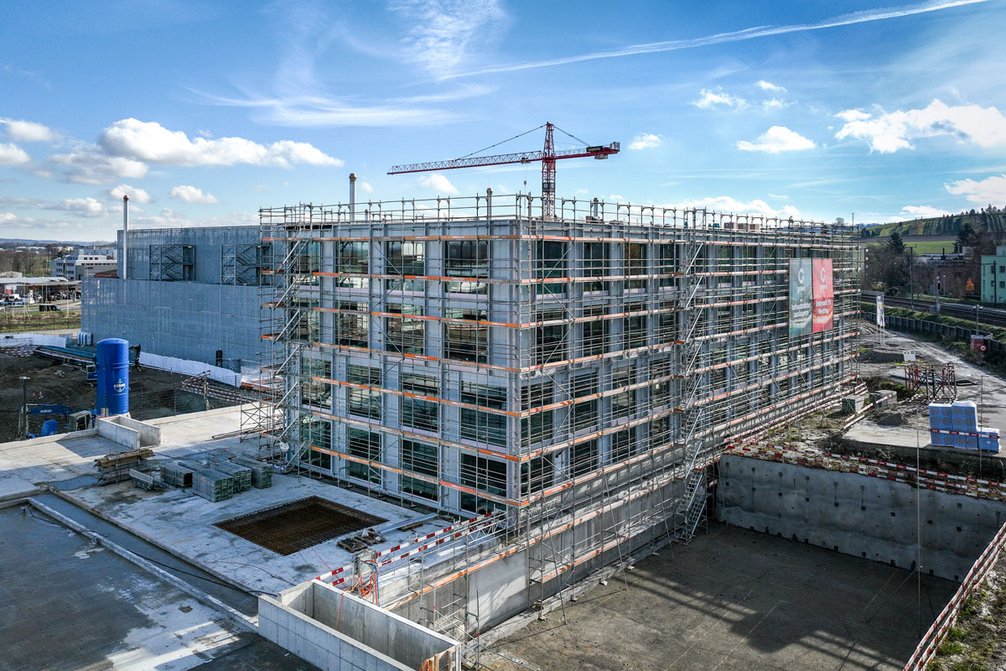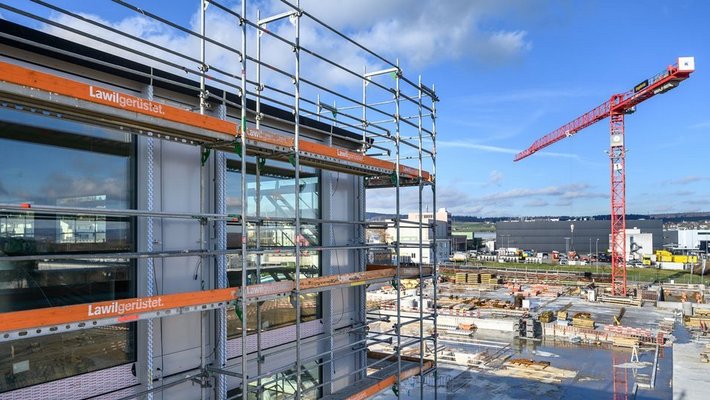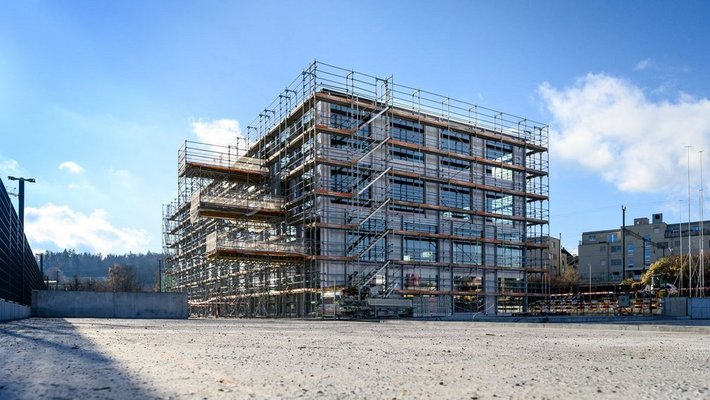A Swiss first: fully recycled aluminium

Aluminium is an extremely robust metal, ideally suited to sustainable construction. It does take a lot of energy to make aluminium from the raw materials, but it has a longer useful life that just about any other substance with comparable properties. Around three quarters of the aluminium ever produced is still in use.
One of the things that gives it such a low environmental impact is that it can be recycled almost indefinitely. And the recycling process only uses about five percent of the energy needed to extract the primary metal from bauxite ores in the first place.
Thanks to its excellent recyclability, aluminium can play a key role in an effective circular economy. However, producing new material from properly sorted, 100% recycled aluminium is a complex business. Norwegian company Hydro Building Systems recently achieved a breakthrough here: it is the first and only manufacturer able to make a top-quality product from used aluminium without the addition of any new material at all. The CO2 footprint is extremely low.
Implenia is bringing this new recycled building material to Switzerland for the first time – on a construction site in Dielsdorf. Green, Switzerland’s leading data centre provider, is having three high-performance data centres built here, alongside a business park with modern office space. The Green Campus is notable for its high energy efficiency and sustainability. Around 20 tonnes of recycled aluminium have now been installed in the facade elements of the South Office Block.
For the time being, high-quality recycled aluminium is only available in small quantities, and it costs a lot to use. Nevertheless, the four project partners – Green, Implenia, Ernst Schweizer and Hydro Building Systems – have committed themselves to this innovative and sustainable material. It will save more than 167 tonnes of CO2 emissions compared to the average primary aluminium used in Europe.



